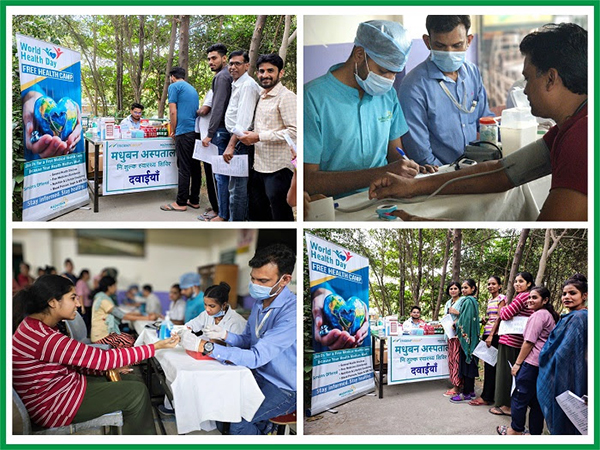Sri Lanka delays fuel distribution as per QR Code system
Jul 25, 2022

Colombo [Sri Lanka], July 25 : The fuel distribution process for vehicles as per the QR code system in Sri Lanka, which was scheduled to commence today, will be delayed further, The Information and Communication Technology Agency of Sri Lanka (ICTA) said on Monday.
Earlier, the Power and Energy Ministry of Sri Lanka announced that the country would start the refuelling process for the vehicles as per the QR code system under the National Fuel Pass portal along with the last digit of the vehicle's registration number from Monday, Daily Mirror reported.
"All arrangements are in place to launch the distribution process by scanning the QR code from today. The fuel will be issued for a maximum of Rs. 1,500 for motorcycles, Rs. 2,000 for three-wheelers and Rs. 7,000 for other vehicles during the course of next week until the fuel permit takes effect," the ministry said.
"The vehicles with the number plate's last digit ending with 6, 7, 8 or 9 will be allowed for refuelling today, Wednesday and Friday," it added.
The ministry also said, "The pilot project was initiated from Thursday (21) until yesterday (24) at selected filling stations in Colombo and other districts before extending nationwide from today."
However, the ICTA ruled out the announcement saying that under the current situation, the fuel pass will only be used in selected gas stations and it will take another few days to implement this system across the island, Xinhua reported.
"Right now, the pilot project was only held in Colombo. Now we will implement it in selected gas stations in all 25 districts," the Director of ICTA Dasun Hegoda said.
Power and Energy minister Kanchana Wijesekera said that the fuel pass was introduced to ensure a weekly fuel quota for motorists given that Sri Lanka is unable to import fuel in adequate quantities.
Notably, Sri Lankan President Ranil Wickremesinghe on Saturday instructed officials to accelerate the fuel distribution process and focus on providing fuel for school and public transport.
He ordered officials to provide fuel to vehicles that transport school children from all state-run fuel depots.
The economic crisis has particularly impacted food security, agriculture, livelihoods, and access to health services. Food production in the last harvest season was 40 - 50 per cent lower than last year, and the current agricultural season is at risk, with seeds, fertilizers, fuel and credit shortages.
The instruction was given at a meeting to address the fuel crisis in the country, as schools will be reopened after several weeks of closure due to fuel shortages.
Sri Lanka has been facing crippling fuel shortages since February. In late June, CPC suspended distributing fuel for private vehicles.
CPC announced to start fuel distribution from July 21, following the arrival of petrol and diesel shipments.
Moreover, the Mobile Fuel Dispensers will be used as a Pilot project to fuel three-wheelers & generator requirements, Sri Lankan Minister of Power and Energy, Kanchana Wijesekera announced.
The economic crisis which is the worst in Sri Lanka's history has prompted an acute shortage of essential items like fuel. Long queues at fuel stations in Sri Lanka is the new normal and prices fluctuate subject to availability.
Hundreds of Sri Lankans continue to queue up at petrol pumps across the debt-ridden country every day amid fuel shortage, and a large number of people are ditching their cars and motorcycles for bicycles for their daily commute.
Skyrocketing prices of fuel are also one of the reasons behind the spike in bicycle sales and some stores are running out of stock.




















